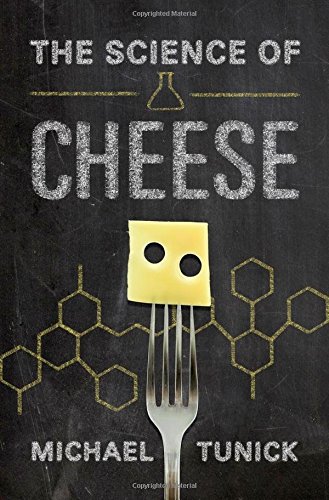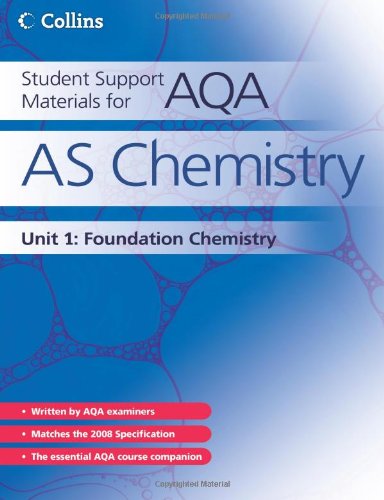(Part 2) Top products from r/chemhelp
We found 21 product mentions on r/chemhelp. We ranked the 56 resulting products by number of redditors who mentioned them. Here are the products ranked 21-40. You can also go back to the previous section.
21. BestEquip 6nm Visible Spectrophotometer 721 350-1020nm Wavelength Range Spectrophotometer Portable Lab Equipment (Type 721)
Sentiment score: 0
Number of reviews: 1
Spectral bandwidth: 6Nm; measurement of optical path: 100mm; optical system: CT grating monochromator, 1200/mm; photometric accuracy: 1. 0% T; photometric repeatability: 0. 5% TWavelength range: 3501020Nm; wavelength accuracy: 3Nm; wavelength repeatability: ≤1Nm; measuring range: 0-199. 0% T, 0-1....
 Show Reddit reviews
Show Reddit reviews22. Pushing Electrons: A Guide for Students of Organic Chemistry, 3rd
Sentiment score: 0
Number of reviews: 1
 Show Reddit reviews
Show Reddit reviews23. Chemical Kinetics and Reaction Dynamics (Dover Books on Chemistry)
Sentiment score: 1
Number of reviews: 1
 Show Reddit reviews
Show Reddit reviews24. Chemistry³: Introducing Inorganic, Organic and Physical Chemistry
Sentiment score: 0
Number of reviews: 1
 Show Reddit reviews
Show Reddit reviews26. Organic Chemistry (6th Edition)
Sentiment score: 1
Number of reviews: 1
Solution Manual
 Show Reddit reviews
Show Reddit reviews27. Chemistry: The Central Science (12th Edition)
Sentiment score: 1
Number of reviews: 1
 Show Reddit reviews
Show Reddit reviews28. Cracking the GRE Chemistry Subject Test, 3rd Edition (Graduate School Test Preparation)
Sentiment score: 0
Number of reviews: 1
 Show Reddit reviews
Show Reddit reviews29. Essentials of Computational Chemistry: Theories and Models
Sentiment score: 1
Number of reviews: 1
 Show Reddit reviews
Show Reddit reviews30. The Organometallic Chemistry of the Transition Metals
Sentiment score: 1
Number of reviews: 1
 Show Reddit reviews
Show Reddit reviews31. The Systematic Identification of Organic Compounds
Sentiment score: 0
Number of reviews: 1
 Show Reddit reviews
Show Reddit reviews32. General Chemistry I as a Second Language: Mastering the Fundamental Skills
Sentiment score: 0
Number of reviews: 1
 Show Reddit reviews
Show Reddit reviews33. Applied Mathematics for Physical Chemistry (3rd Edition)
Sentiment score: 1
Number of reviews: 1
 Show Reddit reviews
Show Reddit reviews34. Symmetry and Spectroscopy: An Introduction to Vibrational and Electronic Spectroscopy (Dover Books on Chemistry)
Sentiment score: 1
Number of reviews: 1
 Show Reddit reviews
Show Reddit reviews35. Vogel's Quantitative Chemical Analysis (6th Edition)
Sentiment score: 1
Number of reviews: 1
 Show Reddit reviews
Show Reddit reviews36. Illustrated Guide to Home Chemistry Experiments: All Lab, No Lecture (DIY Science)
Sentiment score: 0
Number of reviews: 1
Maker Media Inc
 Show Reddit reviews
Show Reddit reviews37. The Thermodynamics of Pizza: Essays on Science and Everyday Life
Sentiment score: 0
Number of reviews: 1
 Show Reddit reviews
Show Reddit reviews



I'd recommend finding yourself two nice textbooks, and working through one methodically while referencing the second during times when the first doesn’t sufficiently explain things. Also, when studying the text, I would recommend solving as many of the “in-chapter” and “end of chapter” problems as you possibly can. You’ll be far more likely to understand the material if you have to apply the requisite knowledge, and it’s pretty established that long term recall will be enhanced by application of material (see the testing effect if curious--Roeidger and Karpicke’s studies were well done).
In fact, regardless of how you are initially presented with the material (be it Khan lectures, textbooks, guides online, people’s answers to your questions, etc.), the bulk of your understanding will likely come from working out problems yourself. This effect can not be overstated, and regardless of how you decide to engage the material, I cannot stress the importance of applying the material.
Assuming you follow the textbook plan, if you find a concept or problem that you just cannot comprehend, look to online resources for aid. Some examples include Khan Academy, MIT Open Courses, and of course, r/chemhelp or r/homeworkhelp.
If you absolutely need some direction and find that a textbook isn’t cutting it, then the MIT series has a number of explicit instructions and lectures to steer you along. If you can catch them when they’re available, Coursera has some courses as well, with actual feedback systems that would likely prove useful.
For book recommendations, I’d check out this thread: http://www.reddit.com/r/chemistry/comments/1xzi9t/general_chemistry_book_recommendations/ There seems to be a good discussion there with lots of options. I personally used Chemistry: the Central Science, but it’s worth mentioning that the math used is pretty low level and isn’t representative of further chemistry study. Still, the concepts are explained fairly well. A note: textbooks can be found for much, much cheaper than is initially seen on listings. Used copies of older textbooks often go for almost nothing. You can even sometimes find PDFs of books, but the legality of that is questionable (even if they’re way easier to navigate and manipulate).
Still, your best course of action likely depends on your individual learning style, so take these suggestions with a grain of salt.
Well, it is a combination of organic chemistry (questions IV,V and VI) and inorganic chemistry (II). Question I is a basic chemistry question.
Question III is maybe inorganic, but could be thermodynamic as well. It depends on where you get the question. I have gotten similar questions in courses about thermodynamics and inorganic chemistry.
I'm not sure what basic books could be useful for you. For my bachelor I use the books organic chemistry and Physical chemistry. These books are quite advanced, I don't know if it helps you in anyway. But this is at least a start.
Sorry, couldn't find a book for inorganic chemistry. (don't know the writer and I can't get to my books unfortunately)
Good luck with learning chemistry!
Standard solutions are prepared in their approximate concentrations and are then standardised against recognised primary standards.
The primary standards are all very pure chemicals that can be further purified by drying in an oven and cooling down in a vacuum desiccator over phosphorus pentoxide.
Primary standards for acids, alkalis and oxidising agents are anhydrous sodium carbonate, potassium hydrogen phthalate anf potassium iodate. In industry you use these so frequently that you get to know their molecular weights by heart.
Once you have standardised solutions of acid, alkali and sodium thiosulfate you use these to standardise other working solutions, so that you have a hierarchy of standards, with the primary standards being the most reliable.
Edit: reference Vogel's Textbook of Quantitative Chemical Analysis, the bible when I was educated.
I highly recommend this book:
https://www.amazon.com/Symmetry-Spectroscopy-Introduction-Vibrational-Electronic/dp/048666144X
My inorganic professor recommended it when I took the course and it was a great investment.
There’s a hint of the effect present in isotopic lifetimes in this chart. The same factors that determine the abundance of an isotope are at play when these isotopes are created in supernovae.
There’s a very nice treatment of relative stability of nuclides in this excerpt (pp. 20-25) of Basic Bethe.
I highly recommend this book: https://www.amazon.com/gp/product/0131008455/ref=oh_aui_search_detailpage?ie=UTF8&psc=1 It really saved me when I took physical chemistry after only having taken Calc 1.
This is a really great book. Not sure how "undergraduate" it is. But I'm not sure just how undergraduate chemical kinetics, as subject all to its own, is either. The mathematics is not the simplest.
But this book will cover any topic. It's very thorough.
I'd also recommend McQuarrie's PChem book. It has a very clear section on kinetics. And it's my favorite PChem book, but only just nudging out Atkins.
This is the book I used and I really liked it. Has lots of trends and explains things in easy to follow terms.
http://www.amazon.com/Organometallic-Chemistry-Transition-Metals/dp/0470257628
Nice.
I also highly recommend Christopher Cramer's book for applications.
I can't think of any websites, but have you looked at all the past papers from different exam boards? I remember borrowing revision guides from the libraries which also had a lot of questions and answers too. Hope this helps!
p.s. if you do AQA Chemistry, try these revision guides : http://www.amazon.co.uk/Student-Support-Materials-AQA-Foundation/dp/0007268254
The fat molecules melt from solid to liquid which results in visible beads of melted fat on the surface of the cheese. After a high enough temperature has been reached, the casein protein unfold which permanently changes the cheese - giving the characteristics of melted cheese.
There's more to that in this book... however, I haven't read it... yet! :P
http://www.amazon.co.uk/The-Science-Cheese-Michael-Tunick/dp/0199922306
I would second this, but have to suggest chemistry cubed is a more well rounded introduction to all of chemistry if you're going into degree level
https://www.amazon.co.uk/gp/aw/d/0199277893/ref=mp_s_a_1_2?ie=UTF8&qid=1525706979&sr=8-2&pi=AC_SX236_SY340_FMwebp_QL65&keywords=chemistry+cubed&dpPl=1&dpID=41fawt9QBoL&ref=plSrch
What about something like these?
https://www.amazon.com/gp/product/B01DQL6GEI/ref=s9_acsd_topr_hd_bw_bQc6C3_c_x_w?pf_rd_m=ATVPDKIKX0DER&pf_rd_s=merchandised-search-3&pf_rd_r=8BTA83D955SP8S639MJX&pf_rd_t=101&pf_rd_p=9820cbf9-67a2-58c4-b8ff-3ae6b4ac944a&pf_rd_i=393265011
https://www.amazon.com/dp/B0761SKN6N/ref=sspa_dk_detail_1?psc=1&pd_rd_i=B0761SKN6N&pd_rd_wg=wKOQf&pd_rd_r=AAQHPCH9KDZFRRASA1KE&pd_rd_w=81WBN
For grad school in pharmacology, you really don't need MO theory. In med chem, only if you are doing theoretical calculations. Klein's organic text or his books mentioned u/rightbackatcha/ are good with arrow-pushing, as is Week's book on the subject. https://www.amazon.com/Pushing-Electrons-Students-Organic-Chemistry/dp/0030206936
If you are interested in these type of questions check out the book thermodynamics of pizza
I’d recommend https://www.amazon.com/Illustrated-Guide-Home-Chemistry-Experiments/dp/0596514921
Might be too basic for your purposes but it’s a start!
https://www.amazon.com/Cracking-Chemistry-Subject-Graduate-Preparation/dp/0375764895
There are dozens of these types of books on Amazon.
According to this book, the Lucas test will produce heat upon reacting with an allyl alcohol, despite it being primary, due to the stability produced from the carbocation. So the Lucas test is conclusive, the melting temp (according to Chem Spider) is around 34 ^o C, and the NMR spectra is a total match
Are you interested in systematic errors, random errors, or both? Ignoring systematic errors, with the information that you've given, here are the obvious things to consider:
For each of the items above, you can determine the uncertainties with a simple design-of-experiments. For validated instrumentation, the uncertainties will be specified as part of the IQ/OQ/PQ process, but even so, you should still verify them yourself.
Once you have these values, calculating how each of them contribute to the final error is relatively straightforward using principles of error propagation. There are many books and websites devoted to the topic of error propagation. I have a copy of John Taylor's book, which I like. It does have a significant number of errors in the book because it contains so many equations and works them out in detail. However, the principles of error propagation are taught very well in the book, and the minor math errors (I know it's ironic) are easy to spot.